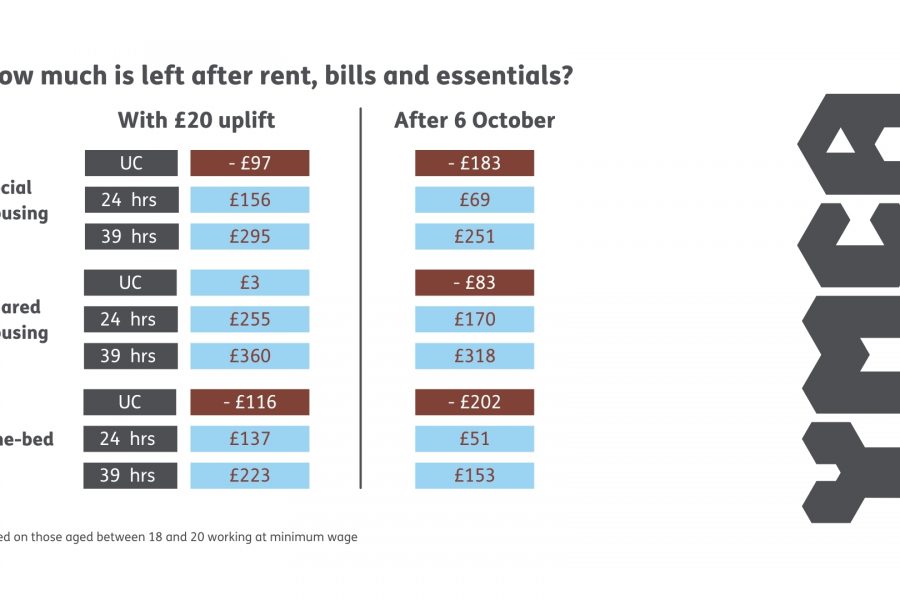YMCA research into government figures today reveals the true extent of potential damage to some of the most vulnerable among the 918,000 young people currently claiming Universal Credit if the £20 a week uplift is removed on 6 October.
For a young person leaving supported accommodation and relying on Universal Credit, there are typically three housing options: social, shared or one-bedroom accommodation. While the current uplift provides more opportunity to find the best fit for each individual, after that £20 is removed the only viable option for many young people is shared housing – an option often not suited to those with complex lives.
When looking at the end of the uplift in relation to employment, government thinking suggests that its removal would inspire a spike in those looking to secure work, however figures for those aged 16-to-24 suggest a high uptake already. More than a third (38%) of 16-to-24-year-olds claiming Universal Credit are employed, with the employment rate in this age range rising significantly between April and June 2021.
What is clear from YMCA research is the stark difference the uplift makes in relation to earnings once bare essentials and daily costs are considered, with young people on low income typically finding themselves priced out of anything past necessity. And for those on Universal Credit and not in employment, affording even essential items after rent and bills can already lead to shortfalls, often meaning financial arrears, reliance on food banks or even skipping meals. Once the £20 uplift is removed, many more young people in this situation risk being pushed beyond the breadline and even further into debt.
Jeff Hurst, Chief Executive of YMCA Newcastle, said:
“For many vulnerable 16-to-24-year-olds, the uplift means that their vital monthly lifeline of £257 – which is already lower than their 25+ counterparts – is boosted significantly by £87 at a critical time in their lives.
“By removing the uplift, the choices a young person has when moving out of supported housing narrow dramatically, impacting the type of accommodation they move in to, access to employment opportunities, and how much money – if any – they have left after covering necessities.”
“While YMCA Newcastle appreciates that difficult decisions must be made in order to support the economic recovery of the country after a truly traumatic time, the removal of this lifeline is not a feasible or a fair decision.
“Therefore, YMCA Newcastle is asking the Government to maintain the £20 weekly uplift to ensure young people striving for independent living are able to find the best possible fit while pursuing a career or learning opportunities – without an increased risk of falling into debt. The choice should never be one or the other.”









